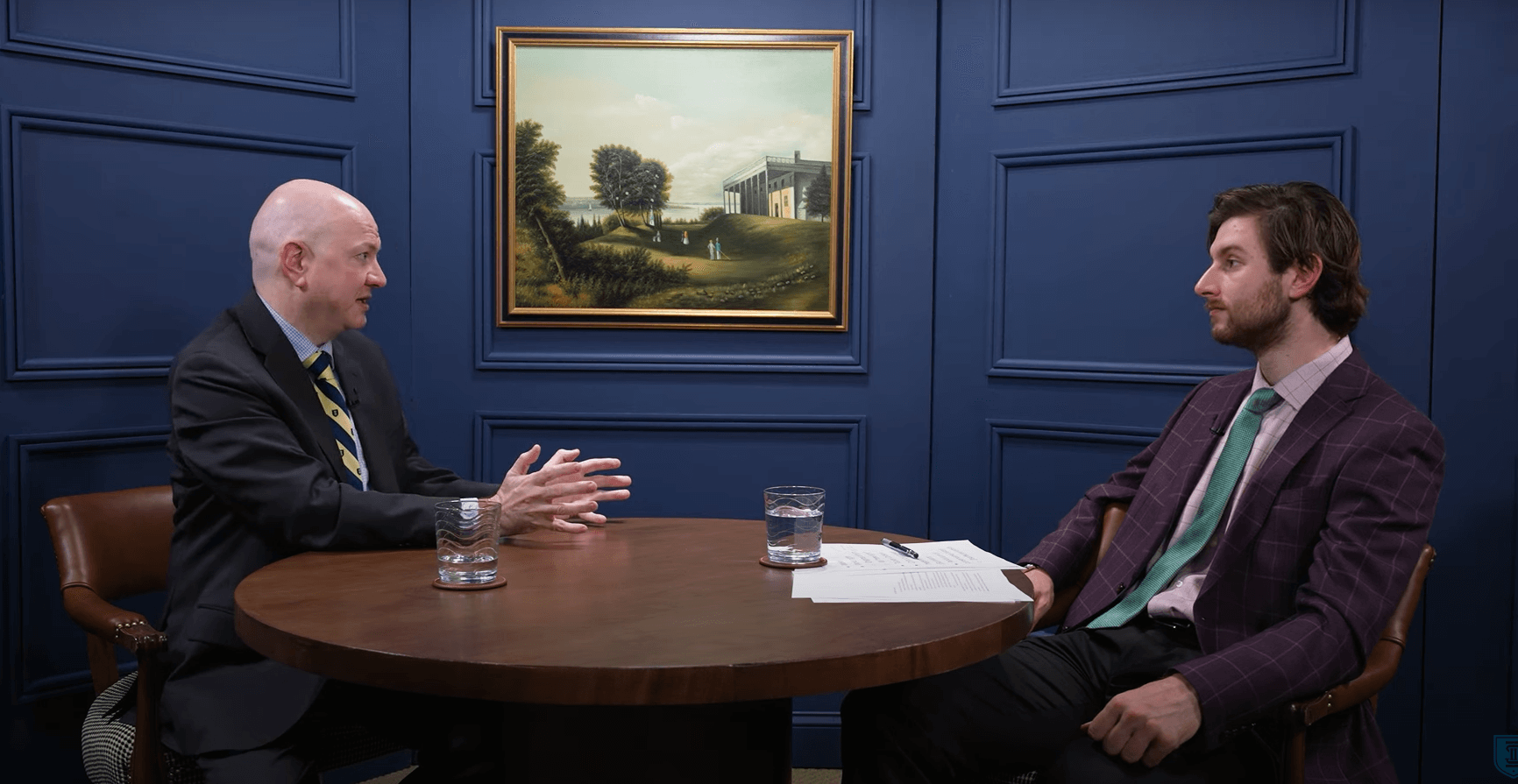Modern Age’s editor-in-chief Daniel McCarthy sits down with Tom Sarrouf, co-host of “Conservative Conversations with ISI,” to discuss the overlap between the American right wing’s response to left-wing grievance culture, particularly in relation to institutional critiques such as critical race theory and gender studies. They discuss the dangers of embracing these critiques, why some on the right feel the urge to do so, and how conservatives can avoid these pitfalls.
In the edited transcript below, McCarthy defines wokeism and explains why it is properly a left-wing concept that is incompatible with conservatism:
Sarrouf: We are here today to talk about what is perhaps a new concept that’s entering into political discourse, especially on the conservative side of things: the woke right. It’s something that’s certainly online, and I think as it’s definitely emerging only a few people are talking about it. The idea of “woke,” is used as a cudgel today, but what is the precise definition of what wokeness is?
McCarthy: The original meaning of wokeness, I believe, was becoming aware of systematic oppression, particularly systemic racism. The woke movement, especially during the first Trump administration—and actually really getting started around the middle of the Obama years—was concerned about the idea of police violence against minorities. But it went beyond that, and it said that there is in fact violence against minorities encoded in the very essence of American life in everything from when you buy a house to the schools you send your children to. All across the board, they said, there were power relationships embedded within the way white America was dealing with nonwhites and that all of these were oppressive and destructive. If there were any problems being suffered by nonwhites, by blacks in particular, that this must be a result of systematic racial oppression.
Then this concept gets extended to other kinds of oppression that the left is very sensitive to, or—in many cases—invents. So not only do you have differential relations between men and women over history, but the left believes the same sort of all-encompassing notion of oppression can be applied to women as well as it applies to sexual minorities, as it applies to all sorts of populations, immigrants and others. That’s what wokeness means: it means becoming aware not just of individual incidents which you know may be actually unjust, but rather saying that the entire system is unjust and that the deck is stacked against women and minorities and anyone who does not fit into the sort of traditional vision of America and Western civilization.
Sarrouf: How is that different, if at all, from critical race theory, which you hear a lot about in the 1619 Project, or critical gender theory like Judith Butler’s or others’, or queer theories that are coming out of the institutions of higher education? Is there any difference between wokeness and some of these things, or is that kind of a catch-all term to describe them?
McCarthy: They’re closely related. So these theories are on the one hand complex, but to say complex does not mean intelligent: they are massive conjurations of nonsense, almost entirely valueless fields of study created by people who have an objective. So the point of critical race theory, the point of gender studies, all of this is aimed at destroying America, destroying Western civilization. It sounds maybe unkind to put it as bluntly as that, but these are forms of study that are concocted by people who have grievances against America—grievances against their fellow citizens—and want to express those grievances using technical language that will cast aspersions upon America. . . .
If you try to rationalize some of these evils the left believes in, you’ll have a hard time doing it, or you’ll find a very mixed picture; whereas if you’re able to theorize them and stay away from anything too concrete and just talk about them sort of concept upon concept, then you’re able to make it vague enough that you can draw any result from any piece of evidence. Critical race theory and gender studies and so forth is related to that in the sense that you become woke once you are aware of these phenomena that these critical theorists are describing.
Sarrouf: I think it’s a very helpful definition because it does get used, often vaguely: “This is woke, that’s woke.” That gets us to the question, is wokeness inherent to a leftist political program, or could there be something like a woke right?
McCarthy: Well, I’ll say two things. On the one hand, yes, wokeism is about this systemic oppression coming from critical race theory and coming from gender studies and the oppression of groups that are traditionally on the margins or at least not in the center of Western civilization, so it has to be construed from that direction, it can’t be the opposite. The people who are promoting this idea of a woke right, we’ll talk about where they’re coming from, and they do have at least a formula that makes sense in their own minds. But really I would say the only logical way of talking about a woke right is precisely a right that buys into these left-wing myths. In particular, you will often find right-wingers who say “maybe some critical race theory or maybe some gender studies can be co-opted or allied with for the right,” and I think that’s a big mistake. In fact, you certainly see a high degree of political correctness traditionally among Republican politicians and among conservatives who are embarrassed to be conservative, so I would say there is an element of wokeness there.
You can watch the full video here:














